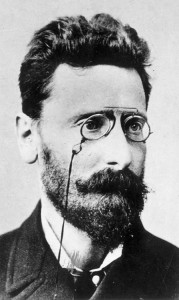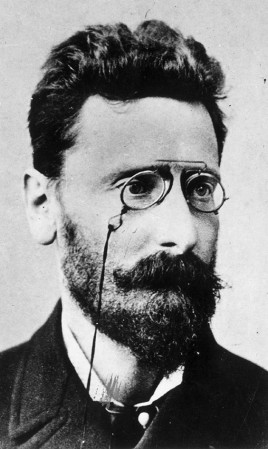2019 Pulitzer Prizes
Wednesday, April 17th, 2019April 17, 2019
The winners of the 103rd Pulitzer Prizes were announced on Monday, April 15, by Columbia University on the recommendation of the Pulitzer Prize Board. The awards are given in the United States each year for distinguished achievement in journalism, literature, drama, and music.

Joseph Pulitzer, a Hungarian immigrant, established the Pulitzer Prizes in 1917. Credit: © Hulton Archives/Getty Images
The public service prize in 2019 went to the South Florida Sun Sentinel for exposing failings by school and law enforcement officials before and after the mass shooting at Marjory Stoneman Douglas High School near Miami in 2018. The staff of the Pittsburgh Post-Gazette won the breaking-news reporting prize for its coverage of another mass shooting at Pittsburgh’s Tree of Life synagogue. The prize for investigative reporting went to writers of the Los Angeles Times for their report on a University of Southern California gynecologist accused of sexually abusing hundreds of patients. Writers for The New York Times won the explanatory-reporting prize for their investigation revealing false financial claims made by United States President Donald Trump. The staff of The Advocate (Baton Rouge, Louisiana) won the local-reporting prize for documenting Louisiana’s discriminatory criminal conviction system. The staff of The Wall Street Journal earned the national-reporting prize for coverage of President Trump’s secret payoffs to women who claimed to have had affairs with him.
Reporters from the Associated Press and from Reuters shared the international-reporting prize for coverage of war atrocities in Yemen and violence against Rohingya people in Myanmar, respectively. Hannah Dreier of ProPublica won the feature-writing prize for her series documenting problems faced by Salvadoran immigrants in New York. Tony Messenger of the St. Louis Post-Dispatch won the commentary award for revealing Missouri’s corrupt system of fines versus jail time for poor people charged with misdemeanor crimes. Carlos Lozada of The Washington Post won for literary criticism. Brent Staples of The New York Times won for editorial writing. Freelancer Darrin Bell won the editorial cartooning prize. Reuters staff photographers won the breaking-news photography award for detailing the ordeal of Central American migrants journeying to the United States border. Lorenzo Tugnoli of The Washington Post won the award for feature photography for his portraits of people affected by the war in Yemen.
Richard Powers won the fiction-writing award for The Overstory, a novel connecting nature with the human experience. Jackie Sibblies won the drama prize for examining racial prejudice in Fairview. David W. Blight won the history award for Frederick Douglass: Prophet of Freedom. Jeffrey C. Stewart won the biography or autobiography award for The New Negro: The Life of Alain Locke. Forrest Gander won the poetry prize for his collection Be With. Eliza Griswold won the nonfiction prize for Amity and Prosperity: One Family and the Fracturing of America. Composer Ellen Reid won the Pulitzer Prize in music for her operatic work, p r i s m. Special Pulitzer citations were given to the late Aretha Franklin, for her contribution to American music and culture, and to the staff of the Capital Gazette (Annapolis, Maryland), for covering the murder of five of their own employees in the newspaper’s offices.
The Columbia University School of Journalism was founded in 1912, and the first Pulitzer Prizes were awarded in 1917. Joseph Pulitzer, a newspaper publisher who founded the St. Louis Post-Dispatch, established the prizes. Nearly all of the Pulitzer Prizes have a value of $10,000. The only exception is the prize for public service in journalism. The winner of that award receives a gold medal.




